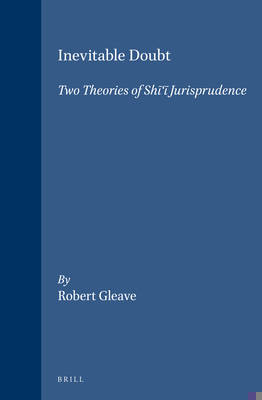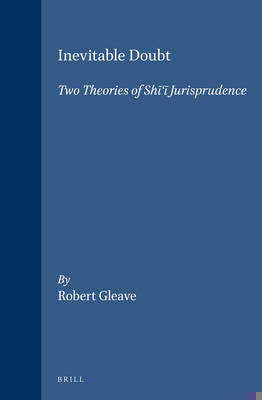
- Afhalen na 1 uur in een winkel met voorraad
- Gratis thuislevering in België vanaf € 30
- Ruim aanbod met 7 miljoen producten
- Afhalen na 1 uur in een winkel met voorraad
- Gratis thuislevering in België vanaf € 30
- Ruim aanbod met 7 miljoen producten
Zoeken
Omschrijving
In this volume, two classical texts of legal theory (usūl al-fiqh) are analysed. The authors of these works belonged to two schools of Shī'ī jurisprudence: Yūsuf al-Baḥrānī (d. 1186/1772) was a key figure in the Akhbārī school, and his adversary, Muḥammad Bāqir al-Bihbahāanī (d. 1206/1791-2) was credited with the revival of the Usūli school and the defeat of Akhbarism after Baḥrānī's death. Through a comparison of the two writers' theories, this work describes the major areas of dispute between the two schools, examining how their different epistemologies lead to different conceptions of the sources and interpretation of the Sharī'a, God's law for humanity. This work will, then, be of interest to historians of Islamic thought generally, and Shī'ī thought and Islamic legal theory, in particular.
Specificaties
Betrokkenen
- Auteur(s):
- Uitgeverij:
Inhoud
- Aantal bladzijden:
- 280
- Taal:
- Engels
- Reeks:
- Reeksnummer:
- nr. 12
Eigenschappen
- Productcode (EAN):
- 9789004115958
- Verschijningsdatum:
- 28/04/2000
- Uitvoering:
- Hardcover
- Formaat:
- Genaaid
- Afmetingen:
- 164 mm x 243 mm
- Gewicht:
- 653 g

Alleen bij Standaard Boekhandel
+ 540 punten op je klantenkaart van Standaard Boekhandel
Beoordelingen
We publiceren alleen reviews die voldoen aan de voorwaarden voor reviews. Bekijk onze voorwaarden voor reviews.








